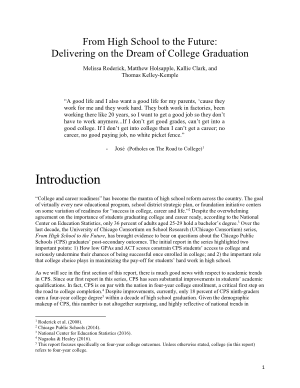1. How could academic strategies, such as increasing GPA or ACT scores, impact students’ prospects of completing college?
2. How could college choice strategies in high school affect students’ prospects of completing college?
3. How could academic and college choice strategies impact college completion rates across the district?
Despite the concerted focus on preparing students to graduate high school ready for college and careers, the gap between college aspirations and degree attainment persists for students at all achievement levels. To better address this gap, educators need reliable information on the most effective strategies for improving student outcomes. This study uses a series of statistical simulations to test which one of three common strategies—improving ACT scores, improving GPA, or improving college choice strategies—would have the greatest effect on students' likelihood of graduating from college.
Key Findings:
- Increasing high school GPA has the greatest effect on students' likelihood of college completion.
- College choice also has significant effects on students' college outcomes.
The simulations presented in this working paper demonstrate the importance of focusing on improving students' academic qualifications and college choice as strategies to increasing college completion rates. For high schools, this work underscores the importance of focusing on improving students' course performance, which leads to improvements in GPA. Better grades, coupled with counseling on college choices, can best help translate students' high school preparation into the highest chance of earning a college degree.
A working paper is a work in progress intended to contribute to current conversations in research, policy, and practice in a timely manner. The findings, interpretations, and conclusions expressed herein are preliminary thoughts solely of the author(s) and shared with permission of the author(s). These preliminary findings, interpretations, and conclusions may change upon further interrogation and collaboration with UChicago Consortium colleagues and other stakeholders in our work.



